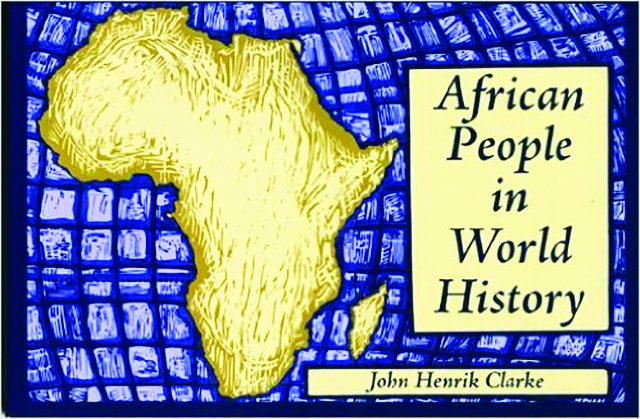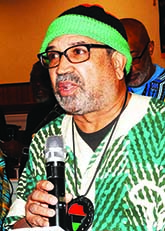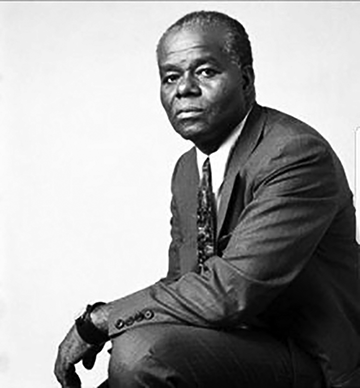
Habari Gani 2023 Vol 6: A Focus on Recent Events

By Makheru Bradley
February 10, 2023 11:55PM

We titled this series Habari Gani, a Kiswahili term we use during Kwanzaa, translated as “What’s New”, or “What is the News?” Our intent is to cover recent events that impact Afrikan people.
Celebrating 97 years of Dr. Carter G. Woodson’s demand for Black History
In the context of what Dr. Woodson described as the week (later month) set aside for the purpose of emphasizing what has already been learned about Afrikan people during the year, and given the current struggles to control what students are taught, I offer this: Why Africana History? By Dr. John Henrik Clarke (selected excerpts)

When the early Europeans first met Africans, at the crossroads of history, it was a respectful meeting and the Africans were not slaves. Their nations were old before Europe was born.
The Greek traveler, Herodotus, was in Africa about 450 B.C. His eyewitness account is still a revelation. He witnessed African civilization in decline and partly in ruins, after many invasions. However, he could still see the indications of the greatness that it had been. In this period in history, the Nile Valley civilization of Africa had already brought forth two "Golden Ages" of achievement and had left its mark for all the world to see.
Slavery and colonialism strained, but did not completely break, the cultural umbilical cord between the Africans in Africa and those who, by forced migration, now live in what is called the Western World. A small group of African-American and Caribbean writers, teachers and preachers, collectively developed the basis of what would be an African Consciousness movement over 100 years ago. Their concern was with African, in general, Egypt and Ethiopia, and what we now call the Nile Valley.
Our own great historian, W.E.B. DuBois tells us: "Always Africa is giving us something new . . . On its black bosom arose one of the earliest, if not the earliest, of self-protecting civilizations, and grew so mightily that it still furnishes superlatives to thinking and speaking men. Out of its darker and more remote forest vastness came, if we may credit many recent scientists, the first welding of iron, and we know that agriculture and trade flourished there when Europe was a wilderness."
Dr. DuBois tells us further that: "Nearly every human empire that has arisen in the world, material and spiritual, has found some of its greatest crises on this continent of Africa. It was through Africa that Christianity became the religion of the world . . . It was through Africa that Islam came to play its great role of conqueror and civilizer."
History, I have often said, is a clock that people use to tell their political time of day. It is also a compass that people use to find themselves on the map of human geography. History tells a people where they have been and what they have been. It also tells a people where they are and what they are. Most importantly, history tells a people where they still must go and what they still must be.
The African- Americans are the least integrated and the most neglected of the groups in the historical interpretation of the American experience. This neglect has made African-American History Month a necessity. For African-Americans, Carter G. Woodson led the way and used what was then called, Negro History Week, to call attention to his people's contribution to every aspect of world history.
The ultimate purpose of history and history teaching is to use a people's talent to develop an awareness and a pride in themselves so that they can create better instruments for living together with other people. This sense of identity is the stimulation for all of a people's honest and creative efforts. A people's relationship to their heritage is the same as the relationship of a child to its mother.
To understand fully any aspect of African-American life, one must realize that the African-American is not without a cultural past, though he was many generations removed from it before his achievements in American literature and art commanded any appreciable attention. Africana, or Black History, should be taught every day, not only in the schools, but also in the home. African History Month should be every month.
In the twenty-first century there will be over one billion African people in the world. We are tomorrow's people. But, of course, we were yesterday's people, too. With an understanding of our new importance we can change the world, if first we change ourselves. (Dr. John H. Clarke—January 1, 1915—July 16, 1998)
A few books serious students of Afrikan history should read: Part 1
- Nile Valley Contributions to Civilization - Anthony Browder
- Introduction to African Civilizations - John G. Jackson
- Africa Mother Of Western Civilization - Dr. Yosef ben Jochannon
- Destruction of Black Civilization - Chancellor Williams
- The African Origin of Civilization: Myth or Reality - Cheikh Anta Diop
- African Philosophy: The Pharaonic Period: 2780 - 330 BC - Theophile Obenga
- Egypt Revisited – Ivan Van Sertima
- African People in World History - John Henrik Clarke
(The views and opinions expressed in this article are those of the author)
For more from the author, follow Afrikan Liberation Media.


